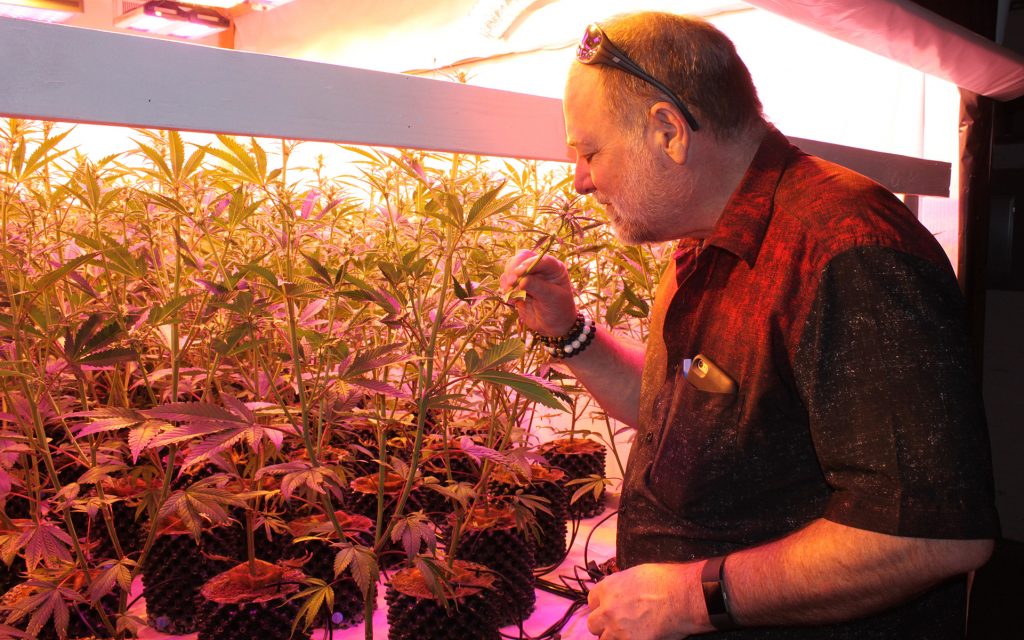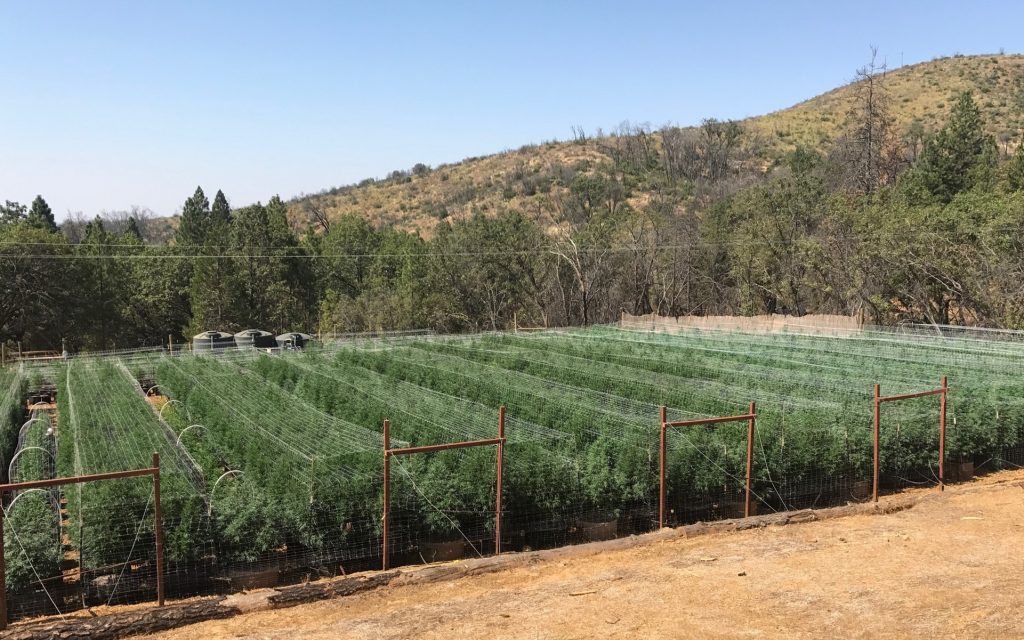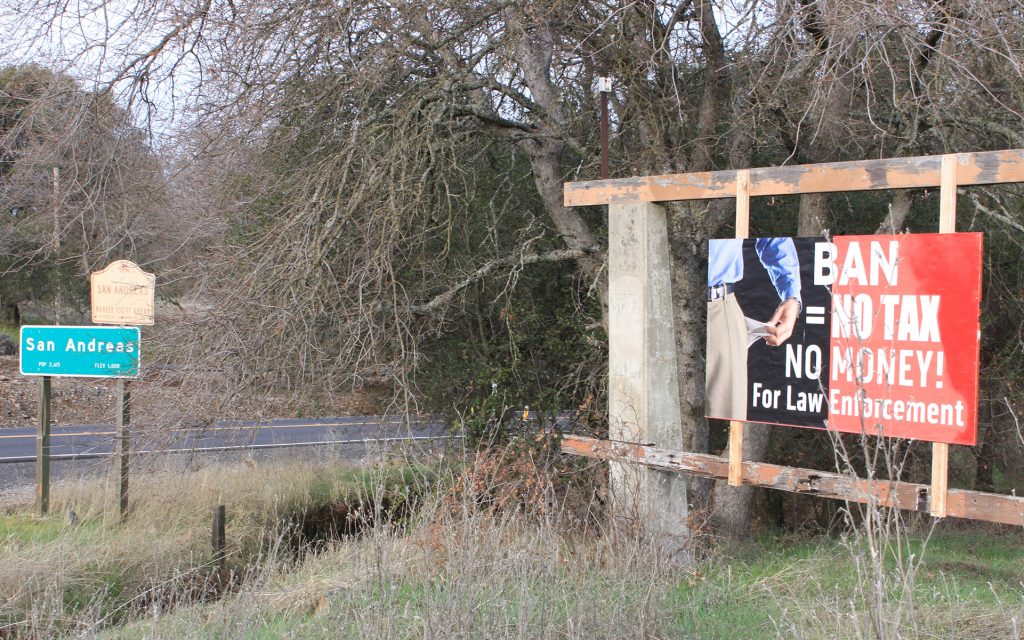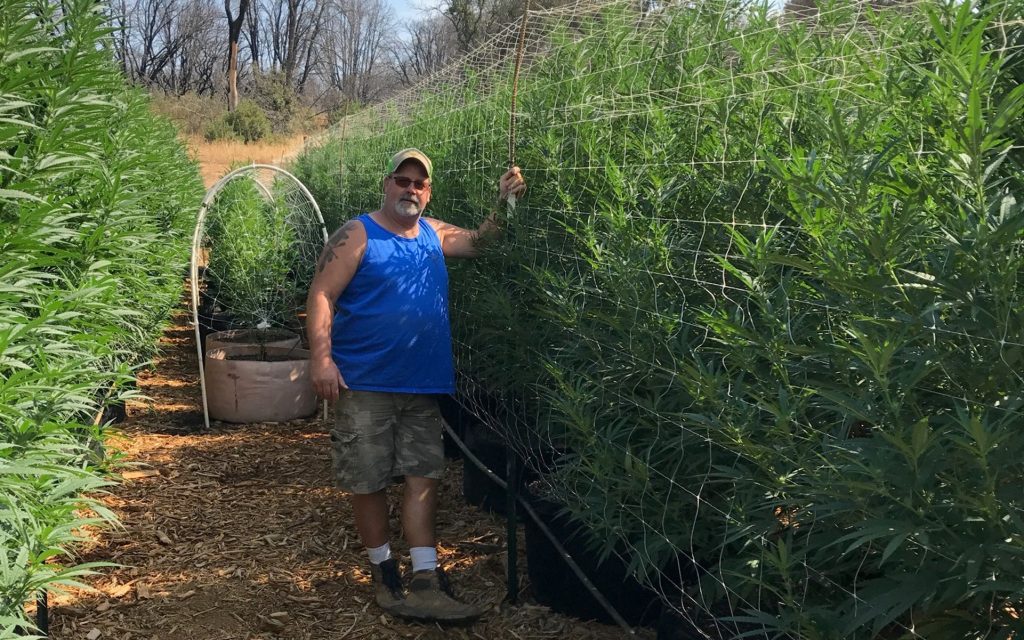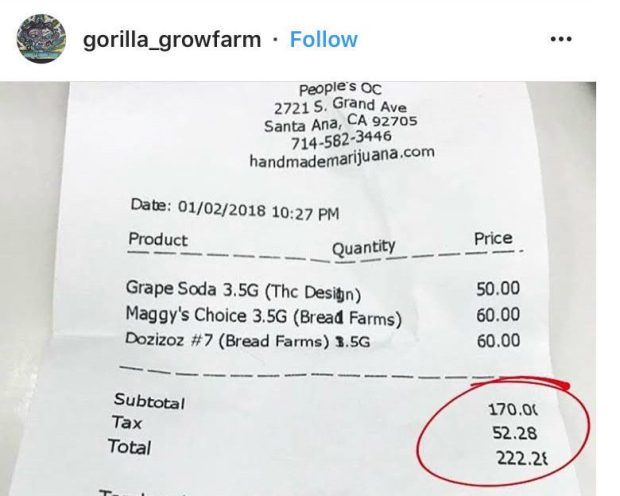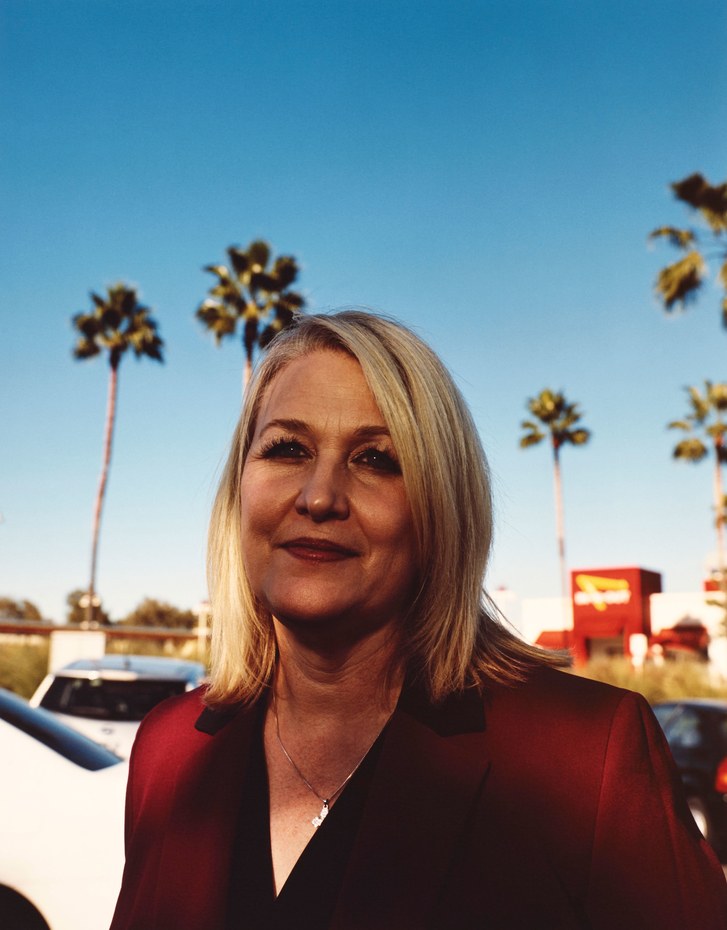Baron23
Well-Known Member
How California leaders are fighting back against Sessions' marijuana crackdown
California legislators are fighting back against U.S. Attorney General Jeff Sessions’ attempt to crack down on state cannabis programs, launching letter-writing campaigns, proposing new laws and discussing federal lawsuits to safeguard legal marijuana.
“The genie is out of the bottle, so to speak,” said Rep. Lou Correa, D-Santa Ana, who’s calling for federal legislators to block Department of Justice appointments until the Trump administration changes its stance on marijuana.
“It is time that we address cannabis as adults.”
That defiance is tinged with concern: If an amendment that protects the state’s medical cannabis businesses expires Friday, along with the federal budget, it could give Sessions and other marijuana opponents a window to go after California’s emerging, multibillion-dollar legal industry.
But California lawmakers on both sides of the aisle say they don’t believe federal authorities have the resources or — aside from Sessions himself — the political will to target businesses and consumers in states where marijuana is legal.
In fact, they said Sessions’ efforts may be fueling a bipartisan push to support state rights on this issue, and to end the war on drugs once and for all.
“Not only are we fighting back, but we’re moving forward,” said Rep. Barbara Lee, D-Oakland, in a press call Wednesday in which she announced a proposed bill to legalize marijuana at the federal level.
Eight states, including California, have legalized recreational cannabis. And 29 states permit medical marijuana. But marijuana remains illegal under federal law, which still lists it as a Schedule I drug, on par with heroin.
For the past five years, an Obama-era policy has offered legal marijuana states some protection from federal prosecution. The Cole Memo, issued by Deputy Attorney General James Cole in August 2013, stopped federal officials from going after individuals and businesses in legal marijuana states if they were taking certain steps to keep cannabis from getting to kids and the black market.
Customers line up at the counter to purchase marijuana at Harborside in Oakland, Calif., on Monday, Jan. 1, 2018. (Jose Carlos Fajardo/Bay Area News Group)
But on Jan. 4, just three days after California launched legal recreational marijuana sales, Sessions repealed the Cole Memo.
That decision didn’t trigger raids on California marijuana stores, and evidence of a federal crackdown on state-legal cannabis businesses has yet to emerge. But Sessions’ move did give U.S. Attorneys in each state the authority to prosecute residents for marijuana crimes as they see fit.
Long Beach Mayor Robert Garcia and San Leandro Mayor Pauline Cutter joined 10 mayors from across the country in writing a letter to Sessions condemning his repeal of the Cole Memo, calling the decision “neither tough nor smart.”
“Reversing course now is a misguided legal overreach and an attack on cities where legal, safe, and high(ly) regulated recreational sale and use occurs, and on the majority of states where the voters have made their voices hears loud and clear on this issue,” the letter reads.
The mayors pledged to “do everything we can within the rule of law” to protect their residents and businesses from this “overreach.”
Garcia said the most important thing local leaders can do is to implement “safe and smart policies.” He said they plan to do just that in Long Beach, where three permitted medical marijuana dispensaries are already open under a voter-approved ballot measure, and more are coming soon.
“The push from the attorney general is difficult, and it certainly doesn’t give us clarity,” Garcia said. “But we’re doing the best that we can to implement the will of our local voters.”
In Washington, D.C., Correa is recruiting fellow House members from California to sign a letter he wrote to Senators Dianne Feinstein and Kamala Harris, asking them to block all Department of Justice nominations until Sessions reverses his decision on the Cole Memo. He hopes to get the attention of the Trump administration and President Donald Trump himself, who can be heard in video released Wednesday by the Colorado Springs Gazette pledging to support state-legal medical marijuana programs while he was on the campaign trail.
“This is not a partisan issue. It’s a states’ rights issue,” Correa said.
“Are we going to go back to the days of arresting people for smoking a joint? For self-medicating? I just think that that’s not a plausible public policy perspective.”
One thing still helps keep U.S. Attorneys in check: a budget rider that blocks DOJ funds from being used to prosecute medical marijuana cases that are legal under state law.
That rider, the Rohrabacher-Blumenauer amendment (originally known as the Rohrabacher-Farr amendment), has been renewed along with the federal budget each year since it passed in 2014. But with federal lawmakers at a standoff over this year’s funding bill, there’s a chance the Rohrabacher-Blumenauer amendment could expire along with the current budget extension on Friday.
Rep. Dana Rohrabacher, left, gets a tour of Bud and Bloom dispensary in Santa Ana from Kyle Kazan, a partner and board member, on Friday, May 5, 2017. (Photo by Leonard Ortiz, Orange County Register/SCNG)
Rep. Dana Rohrabacher, R-Costa Mesa, who authored the amendment, said he hopes to avoid a government shutdown Friday for many reasons. But he said he’s not too concerned over how that would impact state legal marijuana programs, since authorities wouldn’t have any funding or staff to go after marijuana cases while the government was shuttered.
Rohrabacher said he signed Correa’s letter calling for a block on DOJ appointments. And he’s pushing for legislation that would make it clear that federal law can’t supersede state law when it comes to marijuana.
Lee, the Congresswoman from Oakland, on Jan. 11 introduced a bill that would make the Rohrabacher-Blumenauer amendment obsolete. It would block not only the DOJ but any federal agency from using funds to go after state-legal marijuana programs. It would cover not just medical marijuana, but also recreational marijuana. And it would cover states indefinitely, without having to be renewed each year like the current budget rider.
The bill — called HR 4779 or the REFER Act of 2018 — would also prevent banks from being penalized if they serve the cannabis industry.
California Attorney General Xavier Becerra on Tuesday joined a bipartisan group of 18 colleagues who are urging Congress to pass legislation that would let banks handle marijuana money.
Since marijuana remains federally illegal, most banks won’t do businesses with the industry out of fear they’ll be prosecuted for money laundering. That makes cash-oriented marijuana businesses prime targets for crime, Becerra said. Also, he added, the current situation makes it difficult for law enforcement to track cannabis payments, and for businesses to pay their taxes.
“The future of small and local licensed businesses has been clouded by the Trump Administration’s relentless attacks on progress, in conflict with the will of voters,” Becerra said.
Lee — with support from Rep. Ro Khanna, D-Silicon Valley — on Wednesday also introduced the House version of a bill Senator Cory Booker, D-New Jersey, authored in August called the Marijuana Justice Act.
The bill would legalize cannabis at the federal level. It would also let people with federal marijuana convictions apply for resentencing or expungement. And it would reinvest funds into communities hardest hit by drug policies that have disproportionately impacted low-income and minority populations.
“This legislation will end this destructive war on drugs,” Lee said.
The bill already drew 12 cosigners, she said, even before it received an official bill number.
In the meantime, Correa is advising cannabis businesses to “lawyer up.”
“We all thought that we would be moving beyond a treacherous legal environment and now we’re back into a situation where you have to fear whether you’ll be arrested or not,” he said.
“All bets are off.”
California legislators are fighting back against U.S. Attorney General Jeff Sessions’ attempt to crack down on state cannabis programs, launching letter-writing campaigns, proposing new laws and discussing federal lawsuits to safeguard legal marijuana.
“The genie is out of the bottle, so to speak,” said Rep. Lou Correa, D-Santa Ana, who’s calling for federal legislators to block Department of Justice appointments until the Trump administration changes its stance on marijuana.
“It is time that we address cannabis as adults.”
That defiance is tinged with concern: If an amendment that protects the state’s medical cannabis businesses expires Friday, along with the federal budget, it could give Sessions and other marijuana opponents a window to go after California’s emerging, multibillion-dollar legal industry.
But California lawmakers on both sides of the aisle say they don’t believe federal authorities have the resources or — aside from Sessions himself — the political will to target businesses and consumers in states where marijuana is legal.
In fact, they said Sessions’ efforts may be fueling a bipartisan push to support state rights on this issue, and to end the war on drugs once and for all.
“Not only are we fighting back, but we’re moving forward,” said Rep. Barbara Lee, D-Oakland, in a press call Wednesday in which she announced a proposed bill to legalize marijuana at the federal level.
Eight states, including California, have legalized recreational cannabis. And 29 states permit medical marijuana. But marijuana remains illegal under federal law, which still lists it as a Schedule I drug, on par with heroin.
For the past five years, an Obama-era policy has offered legal marijuana states some protection from federal prosecution. The Cole Memo, issued by Deputy Attorney General James Cole in August 2013, stopped federal officials from going after individuals and businesses in legal marijuana states if they were taking certain steps to keep cannabis from getting to kids and the black market.
Customers line up at the counter to purchase marijuana at Harborside in Oakland, Calif., on Monday, Jan. 1, 2018. (Jose Carlos Fajardo/Bay Area News Group)
But on Jan. 4, just three days after California launched legal recreational marijuana sales, Sessions repealed the Cole Memo.
That decision didn’t trigger raids on California marijuana stores, and evidence of a federal crackdown on state-legal cannabis businesses has yet to emerge. But Sessions’ move did give U.S. Attorneys in each state the authority to prosecute residents for marijuana crimes as they see fit.
Long Beach Mayor Robert Garcia and San Leandro Mayor Pauline Cutter joined 10 mayors from across the country in writing a letter to Sessions condemning his repeal of the Cole Memo, calling the decision “neither tough nor smart.”
“Reversing course now is a misguided legal overreach and an attack on cities where legal, safe, and high(ly) regulated recreational sale and use occurs, and on the majority of states where the voters have made their voices hears loud and clear on this issue,” the letter reads.
The mayors pledged to “do everything we can within the rule of law” to protect their residents and businesses from this “overreach.”
Garcia said the most important thing local leaders can do is to implement “safe and smart policies.” He said they plan to do just that in Long Beach, where three permitted medical marijuana dispensaries are already open under a voter-approved ballot measure, and more are coming soon.
“The push from the attorney general is difficult, and it certainly doesn’t give us clarity,” Garcia said. “But we’re doing the best that we can to implement the will of our local voters.”
In Washington, D.C., Correa is recruiting fellow House members from California to sign a letter he wrote to Senators Dianne Feinstein and Kamala Harris, asking them to block all Department of Justice nominations until Sessions reverses his decision on the Cole Memo. He hopes to get the attention of the Trump administration and President Donald Trump himself, who can be heard in video released Wednesday by the Colorado Springs Gazette pledging to support state-legal medical marijuana programs while he was on the campaign trail.
“This is not a partisan issue. It’s a states’ rights issue,” Correa said.
“Are we going to go back to the days of arresting people for smoking a joint? For self-medicating? I just think that that’s not a plausible public policy perspective.”
One thing still helps keep U.S. Attorneys in check: a budget rider that blocks DOJ funds from being used to prosecute medical marijuana cases that are legal under state law.
That rider, the Rohrabacher-Blumenauer amendment (originally known as the Rohrabacher-Farr amendment), has been renewed along with the federal budget each year since it passed in 2014. But with federal lawmakers at a standoff over this year’s funding bill, there’s a chance the Rohrabacher-Blumenauer amendment could expire along with the current budget extension on Friday.
Rep. Dana Rohrabacher, left, gets a tour of Bud and Bloom dispensary in Santa Ana from Kyle Kazan, a partner and board member, on Friday, May 5, 2017. (Photo by Leonard Ortiz, Orange County Register/SCNG)
Rep. Dana Rohrabacher, R-Costa Mesa, who authored the amendment, said he hopes to avoid a government shutdown Friday for many reasons. But he said he’s not too concerned over how that would impact state legal marijuana programs, since authorities wouldn’t have any funding or staff to go after marijuana cases while the government was shuttered.
Rohrabacher said he signed Correa’s letter calling for a block on DOJ appointments. And he’s pushing for legislation that would make it clear that federal law can’t supersede state law when it comes to marijuana.
Lee, the Congresswoman from Oakland, on Jan. 11 introduced a bill that would make the Rohrabacher-Blumenauer amendment obsolete. It would block not only the DOJ but any federal agency from using funds to go after state-legal marijuana programs. It would cover not just medical marijuana, but also recreational marijuana. And it would cover states indefinitely, without having to be renewed each year like the current budget rider.
The bill — called HR 4779 or the REFER Act of 2018 — would also prevent banks from being penalized if they serve the cannabis industry.
California Attorney General Xavier Becerra on Tuesday joined a bipartisan group of 18 colleagues who are urging Congress to pass legislation that would let banks handle marijuana money.
Since marijuana remains federally illegal, most banks won’t do businesses with the industry out of fear they’ll be prosecuted for money laundering. That makes cash-oriented marijuana businesses prime targets for crime, Becerra said. Also, he added, the current situation makes it difficult for law enforcement to track cannabis payments, and for businesses to pay their taxes.
“The future of small and local licensed businesses has been clouded by the Trump Administration’s relentless attacks on progress, in conflict with the will of voters,” Becerra said.
Lee — with support from Rep. Ro Khanna, D-Silicon Valley — on Wednesday also introduced the House version of a bill Senator Cory Booker, D-New Jersey, authored in August called the Marijuana Justice Act.
The bill would legalize cannabis at the federal level. It would also let people with federal marijuana convictions apply for resentencing or expungement. And it would reinvest funds into communities hardest hit by drug policies that have disproportionately impacted low-income and minority populations.
“This legislation will end this destructive war on drugs,” Lee said.
The bill already drew 12 cosigners, she said, even before it received an official bill number.
In the meantime, Correa is advising cannabis businesses to “lawyer up.”
“We all thought that we would be moving beyond a treacherous legal environment and now we’re back into a situation where you have to fear whether you’ll be arrested or not,” he said.
“All bets are off.”


